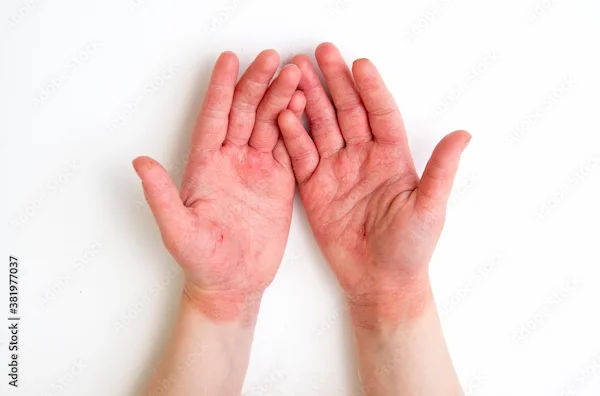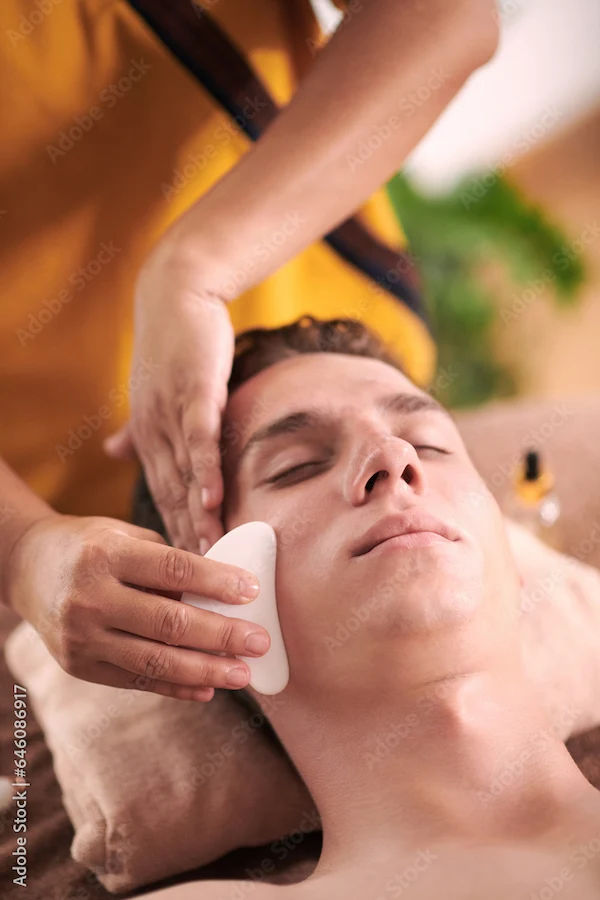How to Reduce Lip Swelling?
Learn how to reduce lip swelling caused by allergies, infections, trauma, or other conditions. Discover common causes, effective home remedies, and when to seek medical attention for persistent or severe swelling.

Written by
Last updated on 3rd Jul, 2025
Swollen lips are a condition where either one or both lips swell up because of inflammation or fluid buildup under the skin. Such conditions may stem from irritations of minor degrees or systemic malfunctions. Due to the wide range of conditions that can lead to this symptom, treatment and management can vary depending on the underlying cause.
Read on to discover the common causes and effective treatments for swollen lips.
Common Causes of Lip Swelling
Various factors, including allergic reactions, infections, trauma, and certain underlying medical conditions, can cause lip swelling. Lip inflammation can occur when food, medicines, or environmental allergens provoke an immune response. Trauma to the lips from a physical blow, insect bites or dental procedures can also lead to swelling.
In addition, infections, like periodontal disease or herpes simplex virus, can present with lip swelling. In some cases, chronic or recurrent lip swelling is due to underlying conditions, such as Crohn's disease or Miescher-Melkersson-Rosenthal syndrome.
Identify the Cause of Lip Swelling
Identifying the exact cause of lip swelling is key to determining an appropriate course of action. Diagnosing this condition typically involves a comprehensive review of the patient’s medical history, a physical exam, and, at times, specific diagnostic tests.
1. Allergic Reactions
Allergic reactions most commonly cause a sudden swelling of the lips. The reactions occur when the body's immune system erroneously recognises a harmless (or benign) substance as a threat and launches a defensive action. When an allergic reaction occurs, the body releases histamine , which causes inflammation, itching, and swelling. Examples of common allergens that can lead to lip swelling include:
Food: Nuts, shellfish, milk, and eggs are common allergens.
Medications: Certain medications, such as antibiotics and NSAIDs, can cause allergic reactions.
Environmental Allergies: Pollen, mould spores, dust, or animal dander can also cause an allergic reaction that results in lip swelling.
Insect Bites or Stings: Venom from insect bites or stings can lead to localised swelling and allergic responses.
2. Infections or Injuries
Direct infections and injuries can cause the lips to become inflamed and swollen. The lips are especially prone to cracking because they are richly vascularised and exposed to the elements. Fruity-smelling breath can be a sign of diabetic ketoacidosis (DKA) associated with diabetes medication overload, which can lead to lip swelling.
Trauma: Physical trauma, including blunt-force trauma to the face or a cut, can result in the immediate development of swelling.
Dental Problems: Swelling can also be caused by infections associated with dental work or ill-fitting dental appliances.
Sun Exposure: Overexposure to the sun leads to sunburn, chapped lips and swelling.
Home Remedies for Lip Swelling
Mild lip swelling can be treated with home remedies to relieve the discomfort. These remedies are often the most effective when minor irritations or injuries cause swelling.
1. Cold Compress
Placing a cold compress on the swollen lip reduces swelling and acts like an anaesthetic (numbing the area), providing temporary relief. Because of the cold, blood vessels constrict — reducing blood flow to the area and swelling. To use a cold compress:
Place ice wrapped in a cloth or a cold pack in the area to protect the skin.
Place the compress on the swollen lip for 10-15 minutes.
2. Aloe Vera Application
Aloe vera is a good example of something anti-inflammatory and soothing to the skin. Besides, doctors also recommend applying aloe vera gel to a swollen lip as it may help reduce inflammation, speed up healing, and reduce discomfort. To use aloe vera:
Aloe vera is a common treatment that is easy to perform. Extract fresh aloe vera gel from an aloe vera leaf or use commercially available aloe vera gel.
Apply a small amount of aloe vera gel on the swollen lip.
Apply the gel on the fissured lip and leave it for 20-30 minutes.
Rinse gently with water.
3. Baking Soda Paste
Making a paste with baking soda and water might reduce inflammation and help with the itch from the swelling of the lip. Baking soda's alkaline qualities can help neutralise irritants and ease inflammation. Here’s how to make and use a baking soda paste:
Combine one part baking soda with one part water to make a paste.
Apply the paste on the swollen lip.
Leave the paste on the lip for 10-15 minutes.
Rinse gently with water.
Over-the-Counter Medications to Reduce Lip Swelling
Pharmacies offer a variety of over-the-counter (OTC) medications that help relieve swollen lips, particularly those caused by allergies or slight inflammation.
1. Antihistamines
Antihistamines can aid in lessening lip swelling that is a result of allergic reactions. These medications act by inhibiting the function of histamine, the chemical released during an allergic reaction and causes inflammation and swelling. Some common over-the-counter (OTC) antihistamines are:
Diphenhydramine
Loratadine
Cetirizine
2. Anti-Inflammatory Drugs
Nonsteroidal anti-inflammatory drugs (NSAIDs) drugs block the formation of prostaglandins, chemicals in the body that fuel inflammation and pain. Common OTC NSAIDs include:
Ibuprofen
Naproxen
Preventing Lip Swelling
While lip swelling may not always be preventable, transient swelling can often be avoided by recognising and avoiding triggers or protecting lips from injury or irritation.
1. Avoiding Allergens
Avoiding allergens prevents allergy and subsequent lip swelling in patients with established sensitivities. Some ways to avoid allergens include:
Check Labels: Read the food and medicine labels carefully for allergens.
Environmental Control: Reduce exposure to environmental allergens like pollen, mould, and dust.
Allergy Testing: Get allergy testing to determine specific allergens and work on ways to avoid them.
2. Protective Measures for Lips
Keeping the lips safe from harm and environmental instigators can reduce swelling. Protective measures include:
Sun Protection: Apply SPf lip balm to prevent sunburn of the lips.
Avoid Irritants: Avoid lip products or foods that might trigger irritation or allergic reactions.
Hydration: Ensure proper hydration to prevent dry and chapped lips.
When to Seek Medical Attention
Mild lip swelling is often treatable with home remedies and over-the-counter (OTC) medications, but it might require medical attention in certain situations.
Signs of a Severe Allergic Reaction: If lips swell with symptoms of a serious allergic reaction, such as difficulty breathing, wheezing, throat swelling, or lightheadedness, get medical attention immediately. These symptoms could be a sign of anaphylaxis, a potentially life-threatening condition that requires immediate treatment.
Persistent Swelling: If the swelling of the lips lasts longer than a few days or other alarming symptoms can be seen, like redness or fever, visit the doctor. The swelling may indicate an underlying infection or medical condition.
Medical Treatments for Persistent Lip Swelling
The treatment options for persistent lip swelling depend on the cause.
Allergy Testing and Management: Individuals with persistent lip swelling due to allergies can undergo allergy testing. Once allergens have been identified, a health professional can formulate a management plan involving avoiding the allergen, taking antihistamines, or receiving allergy shots (immunotherapy).
Prescription Medications: Occasionally, if lip swelling is particularly persistent, prescription medications may be required to help manage it. For instance, if an illness causes swelling, antibiotics or antivirals can be prescribed. Immunosuppressant medications might be prescribed to lower inflammation for chronic inflammatory conditions like Crohn's disease.
Conclusion
Swollen lips can be a distressing symptom with many possible causes. If anyone experiences an immediate allergic lip reaction, it is vital to seek medical attention, and the same applies if there is no improvement after a few days. Accurately identifying the root cause of swollen lips can help in getting an appropriate treatment and prevent a recurrence.
Awareness of what may trigger lip swelling, prevention, and seeking medical attention when needed can help mitigate lip swelling and support overall health.
Consult Top General Physicians
Consult Top General Physicians

Dr. Mohamed Azeem
General Physician/ Internal Medicine Specialist
2 Years • MBBS,MD(Internal Medicine) CCEBDM
Karaikudi
Apollo Hospitals Karaikudi, Karaikudi

Dr Syed Mateen Pasha
General Physician
2 Years • MBBS
Bengaluru
PRESTIGE SHANTHINIKETAN - SOCIETY CLINIC, Bengaluru

Dr. Anand Ravi
General Physician
2 Years • MBBS
Bengaluru
PRESTIGE SHANTHINIKETAN - SOCIETY CLINIC, Bengaluru

Dr. Harshendra Jaiswal
General Physician/ Internal Medicine Specialist
12 Years • MBBS , MD (General medicine)
Kolkata
108 DHANA DHANVANTARI Clinic, Kolkata
(25+ Patients)

Dr. Sandhya Chandel
General Physician/ Internal Medicine Specialist
16 Years • MBBS, MD (Int. Med.), IDCCM
Bilaspur
Apollo Hospitals Seepat Road, Bilaspur
(125+ Patients)

.webp)

